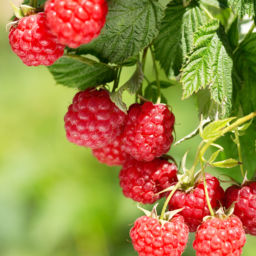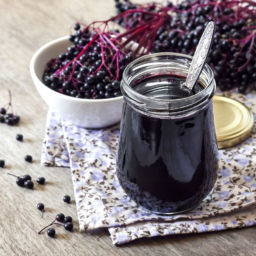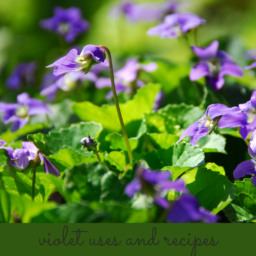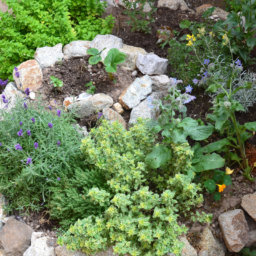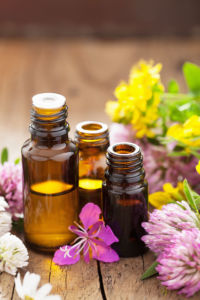
Herb Safety
Herbs have been used to help nourish pregnant bodies and to resolve common pregnancy complaints for thousands of years. Many women seem to trust that herbs are safer to use than pharmaceuticals while growing their babies, and in general, it is true that there are many herbal remedies can be trusted companions for your pregnancy journey.
That said, due to ethical concerns, many herbal remedies have not been extensively tested scientifically and much of what we know about them comes from historical use, observational evidence, retrospective data, and animal studies. Even with the lack of extensive research and in a culture that is very data-driven, few adverse events are reported about herbal use in pregnancy and, in general, poor outcomes most often involve the use of herbs that are known to be toxic, mislabeled, or used at inappropriate doses.
When using herbs to support a pregnant woman, begin with nourishing, tonic herbs that are gentle and food-like. Consider using one herb at a time to learn how it feels in the body so that it can be discontinued if there is any adverse reaction. Continue educating yourself through people who have considerable experience with botanical remedies and by reading respected books and the available research.
It is also important to understand that there is mixed opinion on when herbs should be used during pregnancy as we lack this specific type of data. Some professionals suggest completely avoiding herbs during the first trimester to minimize all possible risk (unless it is medically warranted), while others think that food-like herbs can be used right away. Some providers are more comfortable with women using herbs beginning in the second trimester when the largest risk for miscarriage has passed, while some would like to avoid all herb use until the last few weeks of pregnancy (or entirely).
Work with your care provider and consider your own risk/benefit profile when deciding the right time to begin using herbs, and when thinking about the reasons for using botanicals. Keep in mind that many over-the-counter and pharmaceutical medications are also deemed relatively safe to use during pregnancy, but may similarly lack a solid background of scientific trials to determine safety in pregnancy. There are risks and benefits any time we introduce something new to a pregnancy.
Before using any herbs during pregnancy it is best to check with your healthcare provider. Please understand that the information contained here is not intended to diagnose, treat, or cure, and is solely for educational purposes. Consult your provider before using herbs.
Considering Types of Herbs for Use in Pregnancy
Nourishing Herbs
These are nutrient-dense, tonic herbs that are more food-like than medicinal. They are generally considered the safest herbs and rarely have side effects. Typically, they are consumed in higher quantities and for extended periods of time to improve the body’s strength by providing easily absorbable nutrients, vitamins, and minerals in high quantities. They are the “multi-vitamins” of the herbal world. Examples include nettle, red raspberry, oatstraw, and rose hips. Many of the common herbal pregnancy teas contain some blend of these nourishing herbs. Red raspberry in particular has a long history as a pregnancy tonic and can help to tone the uterus. Studies suggest it may help to shorten the second stage of labor, and may reduce the need for medical interventions (Parsons et al., 1999; Simpsons et al., 2001).
Nutritive herbs can be blended together in a formula, or taken individually. A general suggestion is to take 1 cup of one of these herbs, place in a quart jar, cover with boiling water, and let steep for at least an hour, but up to 8 hours for maximum nutritional benefit.
A common nourishing tea blend for pregnancy may include:
- 2 parts red raspberry leaf
- 2 parts nettle
- 1 part oatstraw
- ½ part rose hips
- ½ part spearmint
Herbs for Short-Term Use
Many other herbs can be considered for short-term use to help with specific concerns of pregnancy (headaches, nausea, etc.) or illness (e.g., the common cold). While we might not want to take these herbs as a daily tonic during pregnancy, we can use a number of these gentle herbs to help with more acute, short-term concerns. Herbs such as echinacea, ginger, and chamomile are generally regarded as safe to use during pregnancy. There are other stronger herbs that may also be used for more serious health issues that arise during pregnancy, but this should be done in collaboration with a health provider.
Echinacea has a long-standing history to help prevent and limit the duration of colds and flu. It has been explored in clinical trials that include pregnant women (Gallo et al., 2000) and is generally regarded as safe.
Ginger has been well studied during pregnancy to help with nausea and stomach discomfort. When used in standard doses, it is generally considered safe to help with morning sickness and even may help with hyperemesis gravidarum (Fischer-Rasmussen et al., 1990; Vutyavanich et al., 2001).
Chamomile is often overlooked because it’s seen as a tasty bedtime tea, but it can be a powerful ally in helping to resolve insomnia and relaxing when the worries of pregnancy seem overwhelming. It is also generally considered safe for use during pregnancy (Romm, 2014).
Herbs to Avoid
While we have a variety of herbs that are considered perfectly gentle and safe to use during pregnancy, especially if for short term use, there are others that should never be used during pregnancy. These herbs may be teratogenic, mutagenic, or abortifacients in varying degrees. Abortifacients and emmenagogues are herbs that can cause uterine contractions which may lead to premature labor. Examples of these herbs include tansy, rue, yarrow, and wormwood. Herbal teratogens, substances that can cause malformation of the developing embryo, include plants such as tobacco, datura, or lupine. Plants with strong alkaloids may cause liver damage in mom or baby and should be avoided. These include plants such as comfrey, borage, coltsfoot, and goldenseal. Stimulating laxatives can cause contractions in the bowels and may also stimulate uterine contractions. Examples of stimulating laxatives to avoid are castor oil, buckthorn, rhubarb, and aloe. Finally, it is best to avoid plants known to have strong phytoestrogen activity such as hops and red clover.
Additional Considerations
Each person comes with their own physiology and constitution. Even if an herb has been considered safe for most, it is best to start with a small amount to see how the herb interacts with an individual’s body. Be especially sure to avoid herbs that contain pyrrolizidine alkaloids (PAs) as they can cause liver damage, laxatives as they can promote uterine contractions, and herbs with strong hormonal properties that are used to promote menstruation. However, including nutritive herbs in your pregnancy self-care can be extremely beneficial, and simple herbs such as ginger, chamomile, and echinacea can safely help to deal with common concerns of pregnancy.
If you have further questions that you’d like to discuss about the use of herbs in pregnancy, please reach out.
Resources
Fischer-Rasmussen W, et al. “Ginger treatment of hyperemesis gravidarum,” Eur J Obstet Gyn Reprod Biol 38, 1 (1990): 19-24.
Gallo M, et al., “Pregnancy outcome following exposure to echinacea: A prospective controlled study,” Archives of Internal
Medicine 160 (2000); 3141-3143.
Herbal Medicines in Pregnancy: What’s Safe & What’s Not. Aviva Romm MD. https://avivaromm.com/herbal-medicines-in-pregnancy-safety/. Published March 27, 2018. Accessed September 24, 2018.
Parsons M, et al. “Raspberry leaf and its effect on labor: safety and efficacy,” Aust Coll Midwives J 12 (1999): 20-25.
Romm AJ. The Natural Pregnancy Book: Your Complete Guide to a Safe, Organic Pregnancy and Childbirth with Herbs, Nutrition, and Other Holistic Choices. Berkeley: Ten Speed Press; 2014.
Simpson M, et al. “Raspberry leaf in pregnancy: its safety and efficacy in labor,” Journal of Midwifery & Women’s Health 46 (2001): 51-59.
Vutyavanich T, et al. “Ginger for nausea and vomiting in pregnancy: randomized, double-masked, placebo-controlled trial,” Obstet Gynecol 97, 4 (2001): 577-582.
Weed S. Wise Woman Herbal for the Childbearing Years (Woodstock, NY: Ash Tree Publishing, 1986).


